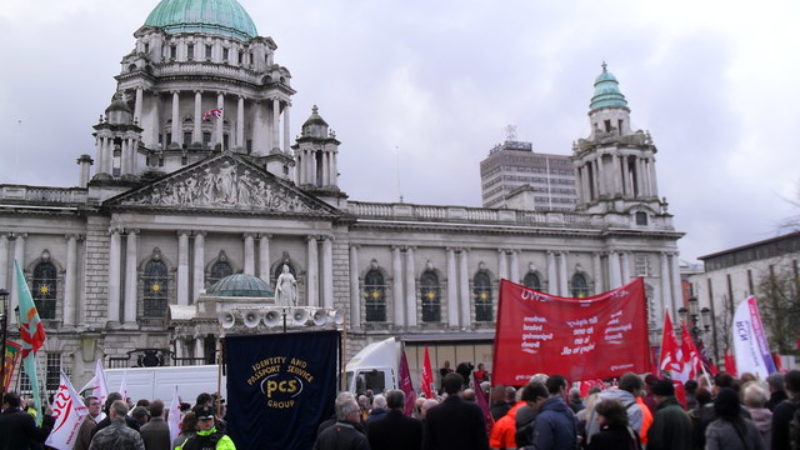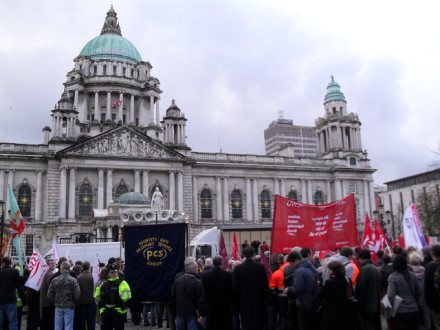
Last week the Government published further details of the Trade Union Bill. The proposed measures are worse than expected. The plans would impose a 50% minimum turnout on strike ballots, and mean that public sector strikes would need the backing of at least 40% of those eligible to vote. On top of this, the Bill contains further constraints on union’s political funds and draconian restrictions on picketing.

These proposals are an open attack on the trade union movement and basic democratic rights. Without shame, a Government elected by 24% of all eligible voters is trying to impose a far higher bar on trade unions’ democratic decisions.
The Bill would mean that any abstentions in strike ballots are effectively counted as “no” votes, a principal which is not applied in any election for public office in the UK. Many MPs – including, Sajid Javid, the Secretary of State for Business Innovation and Skills who is pushing this legislation through – were elected by less than 40% of eligible voters. Turnout in local government and Police and Crime Commissioner elections is often much lower.
The planned restrictions on picketing are equally concerning, but less widely reported. The Bills seeks to turn picketing violations from civil to a criminal offences. If this goes ahead, we may well see people imprisoned for taking part in peaceful picketing. No wonder many see this as a move designed to intimidate trade union activists.
The Government’s proposals also make no sense from an economic point of view. As Unite General Secretary Len McCluskey recently noted, trade unions play a vital role in boosting productivity and building a high wage, high skill economy. The Government’s plans are short-sighted and moving us in the wrong direction.
Areas of the economy like catering and hospitality have worryingly low rates of union representation. As a result, low wages, zero-hours contracts and exploitation are rife. As a society, we need to expand union representation into these areas, rather than further restrictions on trade union organising.
It is worth remembering that the number of days lost through strike action are at historically low levels and that we already have some of the most restrictive trade union laws in Europe. In this context, this Bill looks like nothing more than a politically motivated attack on the labour movement.
I know from personal experience the importance of the links between the trade union movement and the Labour Party. It was the trade union movement and my own union, Unite, which got me involved in politics. We can all see that the Trade Union Bill would weaken our movement and make it harder for people from working class backgrounds to get involved in politics.
The Labour Party was founded to give a political voice to working people. We must continue in this tradition and fight the Government’s attack on trade union rights.
Kate Osamor is the Labour MP for Edmonton




More from LabourList
‘I was wrong on the doorstep in Gorton and Denton. I, and all of us, need to listen properly’
‘Why solidarity with Ukraine still matters’
‘Ukraine is Europe’s frontier – and Labour must stay resolute in its defence’